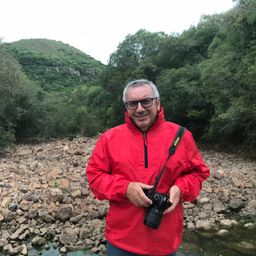From black to green, the Spanish mining landscapes : memory and resignification before the European Green Deal
My Session Status
What:
Paper
When:
11:00 AM, Monday 29 Aug 2022
(20 minutes)
Where:
UQAM, pavillon J.-A. De Sève (DS)
- DS-1420
Coal mining had a splendid past in Spain and Europe, it has been fundamental in its economy and industrial development. The mining communities still keep the memory of the work and the place in their ways of life, with contradictory visions about the industrial heritage, a testimony of their historical past.
On October 24, 2018, the "Framework agreement for a just transition of the coal mining industry and sustainable development of the mining regions 2019-2027" was signed by the Spanish government, mining employers and trade unions. Its aims are: to contribute to the restructuring process of the coal industry within the framework of the EC Decision 2010/787; to take measures for the economic revival and alternative development of the mining regions and to mitigate the loss of jobs in view of the closure of the mines. From December 31, 2009, the process of closure of power plants and mines was accelerated. In 2020 the explosion and demolition of the "Central de Anllares" in Páramo del Sil projected a painful image of the end of a historical cycle.
At the beginning of 2021 there were less than 2,000 active coal miners left in Spain. In 1985 there were about 50,000 who were mainly located in: Asturias, Castilla y León, Aragón and Galicia. In the region of Asturias there are currently 300 miners out of 25,000 thirty years ago and 50,000 fifty years ago.
The landscapes of the mining regions are still full of landmarks and heritage icons, threatened by abandonment and oblivion. The danger is that the "footprints of work" in these territories will disappear forever.
The "European Green Deal" is an objective to counteract climate change. The economic restructuring goes beyond the economic analysis, becoming a process of cultural change with slow rhythms that mature in the long term, so it requires significant economic resources and strategies for a new industrial and urban fabric, with emphasis on sustainable and responsible development.
The "decarbonization”, the energy and ecological transition and the European Green Pact (EGP) affect the re-signification of industrial heritage and forms of identity, which sometimes survive in a precise way, and on other occasions mixed or mitigated by the passage of time through oral and documentary history.
We will detail some initiatives launched in Spanish mining regions, moving from "concrete case studies" to comparative and interregional studies at an international level.
\- Transformation of mining landscapes in Spain through new infrastructure and environmental regeneration.
\- Expressions of memory and work cultures from the vision of local communities, unions, institutions, employers and citizens' actors in the face of change in the Spanish mining landscapes.
\- The mining and electrical industrial heritage as the axis of local development programs and examples of the difficulties of its conservation. The debate present in public opinion between the "hyper-patrimonialization" in some cases or the consideration of an "environmental problem" in the territory, in other opinions and studies.
\- Museums and mining interpretation centers. A critical balance
\- Industrial and cultural tourism. Initiatives, routes and experiences of "round trip
The conservation of industrial heritage must mean much more than the presence of an object suitable for aesthetic or tourist consumption. The musealization of mining heritage has consolidated innovative cases of low museographic profile, associating cultural action with the economy of the region with a tourist purpose and regeneration of the landscape.
The planning of mining heritage spaces is part of an integral systemic, formal and symbolic action of the "social construct". The industrial heritage seen from the citizen himself who is the main actor. A new scenario of mining heritage and landscape that is part of Europe's DNA.
